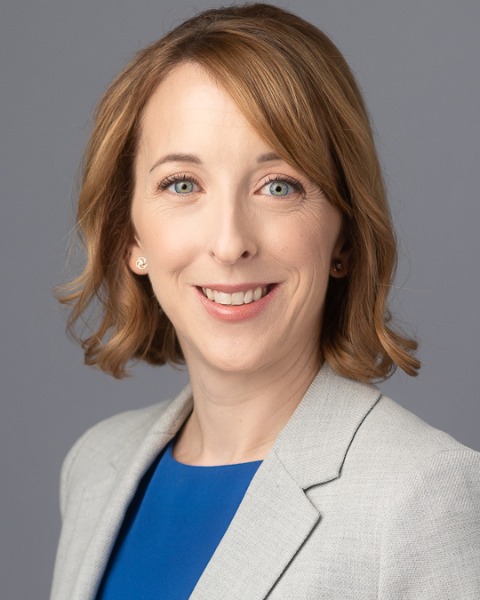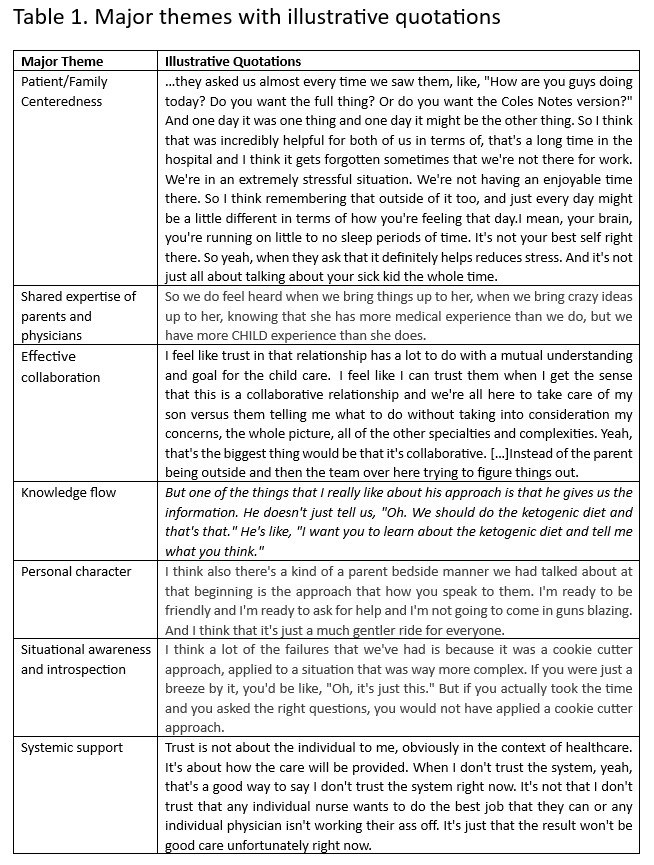Children with Chronic Conditions
Session: Children with Chronic Conditions 1
267 - Trust between parents of children with medical complexity and their child's physicians: facilitators and barriers
Friday, May 3, 2024
5:15 PM - 7:15 PM ET
Poster Number: 267
Publication Number: 267.294
Publication Number: 267.294

Tammie Dewan, MD, MSc (she/her/hers)
Pediatrician
Alberta Children's Hospital, University of Calgary
Calgary, Alberta, Canada
Presenting Author(s)
Background: Trust is a foundation of the therapeutic relationship and is associated with important patient outcomes. Building trust between parents of children with medical complexity (CMC) and physicians during inpatient care is complicated by lack of relational continuity, cumulative (sometimes negative) parent experiences and the need to adjust roles and expectations to accommodate parental expertise.
Objective: To describe how parents of CMC conceptualize trust/mistrust in the physician-parental caregiver relationship within the pediatric inpatient setting and to provide recommendations for building trust in these relationships.
Design/Methods: This qualitative interview study uses interpretive description methodology to better understand the phenomenon of how parents of CMC conceptualize trust with physicians. Recruitment of parents was embedded within a prospective cohort study and interviews were conducted virtually. Data analysis began with familiarization and reflection followed by in-depth coding of the transcripts. Emerging themes were presented to the research team for discussion and verification. Participant member checking was conducted to further validate and enhance themes.
Results: In total, 16 interviews were completed. Thirteen participants were female, ten had completed a university degree and nine had a household income greater than $100,000. The major themes identified related to parent-physician trust included: importance of respecting parent and physician expertise, maintaining a flow of knowledge between them, collaborating effectively and ensuring patient/family centeredness of care. Additional major themes related to the personal character of parent/physician, need for a situational awareness including personal introspection and systemic support for quality of care and development of trust. Parents endorsed a need for reciprocal trust in these relationships: “I think that trust inherently shows that there's that give and take. They trust me, I trust them. They ask me questions. I ask them questions. They're kind to me. I'm kind to them. So, it's really, yeah, I think there's much more of a balance.”
Conclusion(s): Many elements that facilitated trust development were also components of patient and family centered care. However, participants keenly recognized differences in character, circumstances and support that influenced their development of trust. Personalization of care and exploration of the individual needs and perceptions of parents and physicians could help to address some of these contextual factors.

